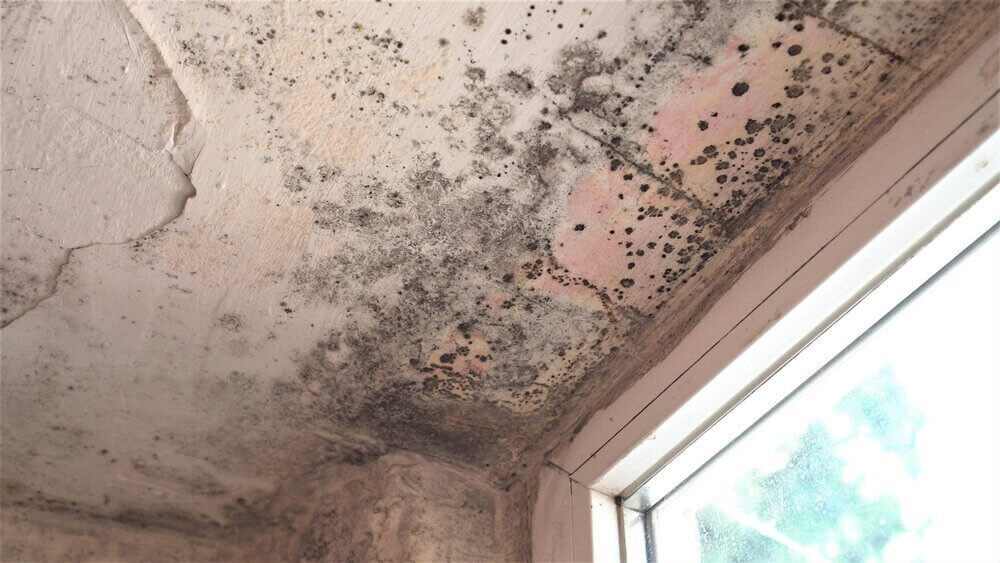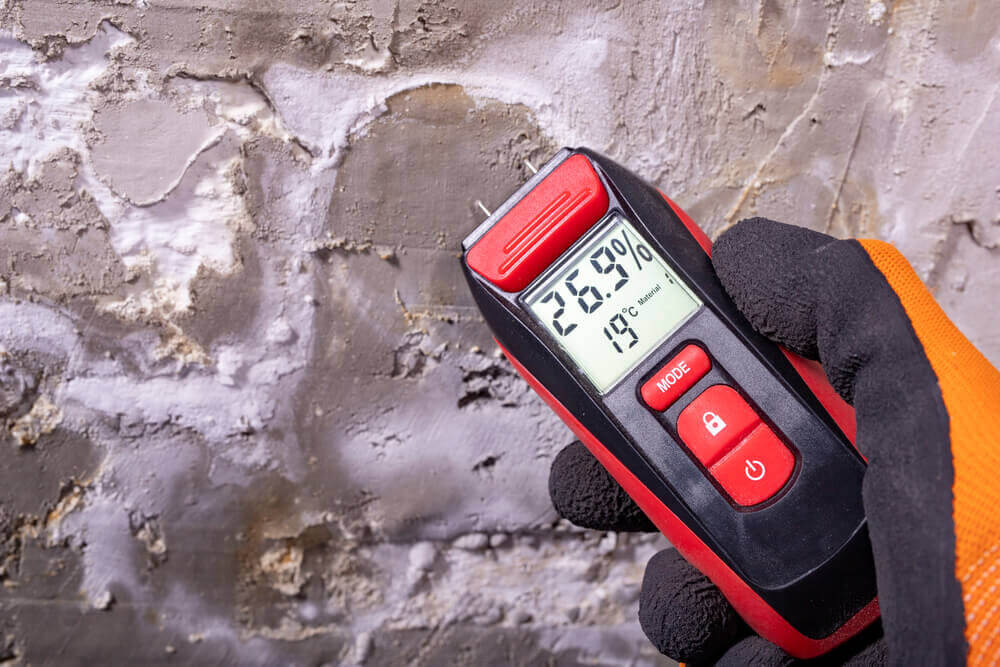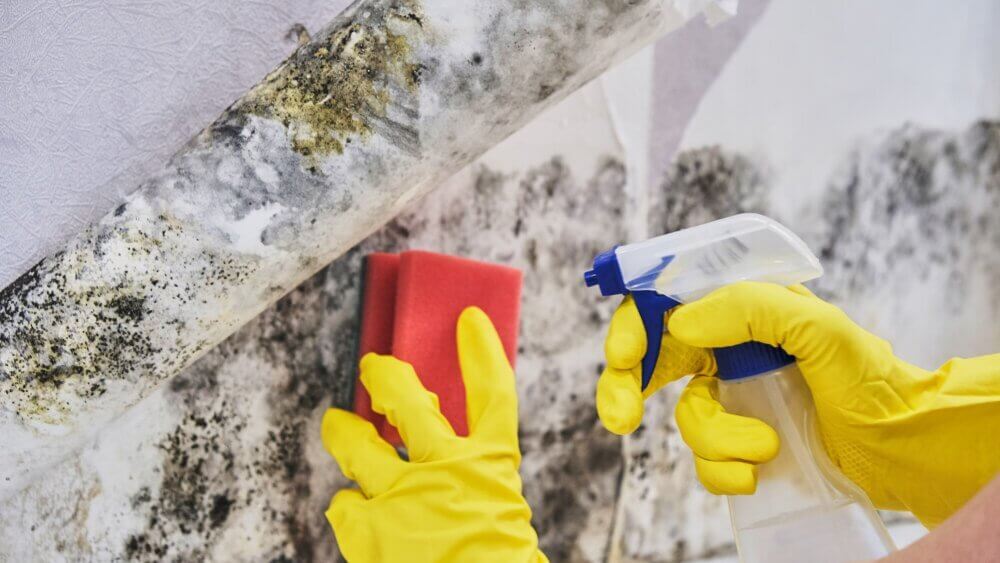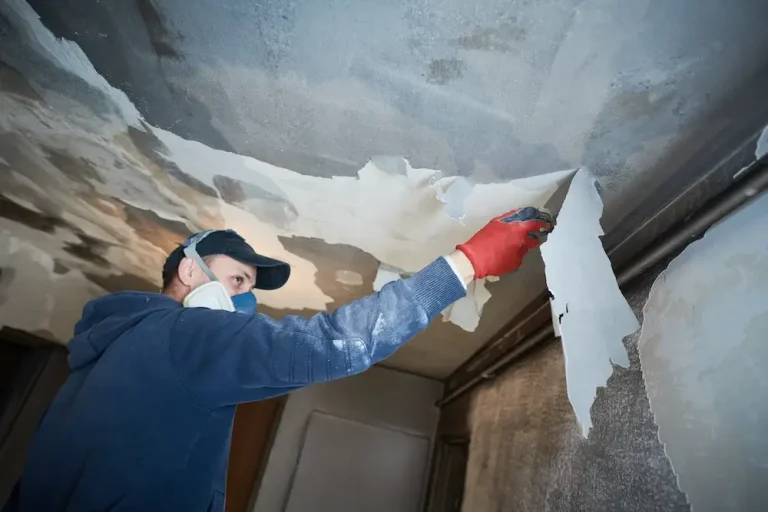Black mould (Stachybotrys chartarum) is the cause of a variety of health problems, with exposure potentially leading to headaches, dizziness, fatigue, coughing, sneezing, and irritation of the eyes, nose, throat and skin. In more severe cases, black mould symptoms can include respiratory problems and even neurological issues.
Because people with weakened immune systems, such as young children, the elderly and those with pre-existing health conditions, are particularly vulnerable to the effects of black mould, you should contact experienced professionals like Restate Property Restoration and seek medical attention if you have black mould symptoms.
How Common is Mould in New Zealand?
Mould is a prevalent issue in New Zealand, particularly due to its damp and humid climate. The high rainfall and humidity levels throughout both North and South Islands provide ideal conditions for mould to grow and thrive. That’s why many homes, buildings and structures in New Zealand are affected by mould.
The prevalence of mould can lead to various health issues, such as allergies and respiratory problems, so it is important to regularly inspect and treat mould growth at its source. The issue of mould in New Zealand is compounded by poor ventilation, lack of insulation and the use of building materials that are prone to retaining moisture. These factors contribute to making mould a persistent problem in the country.
What is Black Mould?
Black mould is a type of fungus that thrives in damp, dark areas. It is dangerous because it produces harmful toxins that can cause respiratory issues and other black mould health effects if inhaled. You can identify black mould as a black, greenish or brownish growth on walls, ceilings and other surfaces, and it is usually found in wet areas like bathrooms, basements and other spaces exposed to high humidity. To prevent black mould growth, you should keep indoor spaces dry and well-ventilated, clean up any spills and leaks promptly and attend to any water damage as soon as it appears.
Is Black Mould Dangerous?
Absolutely! Black mould can be extremely dangerous if not attended to immediately. This type of mould produces harmful toxins that may cause respiratory problems, headaches, fatigue and more serious health issues when inhaled. Long-term exposure to black mould can lead to more extreme health problems, which is why it’s critical that you address any mould growth in your home promptly, such as by hiring black mould removal experts.

What Are the Symptoms of Black Mould Exposure?
If you find black mould in your house it’s essential that you take immediate action to get the situation resolved. This is because black mould health problems can be debilitating, even with relatively minimal exposure. Contact Restate Property Restoration to ensure any black mould in your home or building is removed by a professional.
Once you know how black mould can cause health problems you can know the signs and get medical assistance straight away. The symptoms of black mould exposure may include, but are not limited to:
- Sneezing, coughing, runny nose and scratchy throat
- Red, itchy eyes and skin irritation
- Headaches and dizziness
- Fatigue and weakness
- Breathing difficulties, such as wheezing or shortness of breath
- Nausea and vomiting
- Neurological symptoms, such as memory loss and tremors
- Suppressed immune system
How Are Mould Health Issues Diagnosed?
If you believe you have been exposed to black mould, you should see a doctor immediately. Black mould health effects are generally diagnosed through a combination of physical exams, medical history and tests to assess your exposure to mould. Symptoms such as allergies, respiratory problems and infections will also influence the diagnosis.
Testing For Mould In Your Home
Testing for mould – especially the presence of black mould – in your home is important because exposure can cause serious health issues such as allergies, respiratory problems and infections. Black mould in houses can also damage the physical structure of the building and subsequently lower its value. Regular inspections and timely removal of mould can prevent these problems and help you maintain a healthy living environment.

How to Remove Mould From Your Home
In order to properly remove mould from your home, the first step is to identify and fix any source of moisture. Next, wearing protective gear, clean the surface mould with a solution of water and detergent.
For stubborn or widespread mould, especially black mould in your house, you should hire a professional mould removal service such as Restate Property Restoration. After mould has been removed, you can prevent its recurrence by controlling humidity, fixing leaks and ensuring proper ventilation throughout your home. Regular cleaning and inspection will also help maintain a mould-free home.
Preventing Black Mould In Your Home
The most important step in preventing black mould health effects is to eliminate its presence. You can prevent mould in your home by controlling humidity levels, fixing leaks promptly and keeping the entire home well ventilated. Other tips include:
- Clean and dry any wet areas immediately.
- Use exhaust fans in bathrooms and kitchens, and run a dehumidifier in damp spaces.
- Keep furniture away from exterior walls to allow air to circulate.
- Regularly inspect your home for mould and address any issues promptly.
- Maintain good indoor air quality by using air filters and avoiding the use of toxic chemicals.
Final Thoughts
There’s no denying that mould is a serious problem in New Zealand due to its damp climate, which can lead to various health issues such as allergies, respiratory problems and neurological symptoms. Black mould is particularly dangerous, producing harmful toxins that can cause serious black mould health effects when inhaled.
To prevent and reduce instances of mould in your home, regular cleaning and inspection are essential. If you suspect mould exposure, see a doctor immediately. Hiring a professional mould removal service like Restate Property Restoration is recommended for stubborn or widespread mould, especially black mould.
Why Choose Restate?
Restate Property Restoration is a market-leading supplier of numerous property-restoration services. In addition to mould removal and restoration, we also offer flood and water damage support, decontamination, sanitation and disinfection, and flooded carpet cleaning and drying services.
Because black mould can cause health problems, any sighting of black mould in your house should be rectified immediately. Seek urgent support from experienced professionals by contacting Restate Property Restoration today. Call us on 0800 332 664 or email info@resspec.co.nz.


